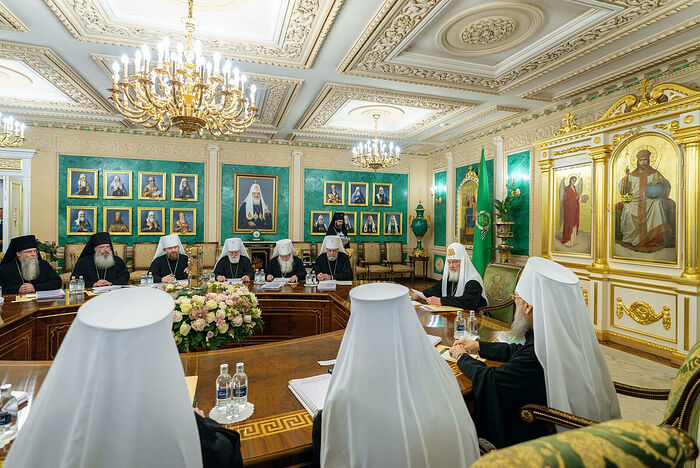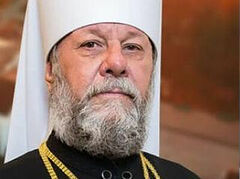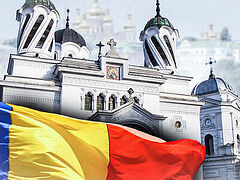Moscow, March 13, 2024
The Holy Synod of the Russian Orthodox Church strongly disagrees with the recent resolutions of the Holy Synod of the Romanian Orthodox Church concerning Ukraine and Moldova.
On February 29, the Romanian Synod announced the establishment of the “Romanian Orthodox Church of Ukraine,” with a call for the ethnically Romanian parishes of Western Ukraine to join it. The Romanian hierarchs also expressed support for their Metropolis of Bessarabia in Moldova, which has received a number of clerics from the Russian Church’s Metropolis of Chișinău without a canonical release, stating any canonical sanctions against these clerics are null and void.
The canonical Ukrainian Orthodox Church has called upon the Romanian Church to reconsider its decision, while the head of the Moldovan Church has called the Romanian Patriarch to dialogue.
The Russian Synod also addressed both issues yesterday, reports Patriarchia.ru.
It first recalled that similar acts from the Romanian Synod have repeatedly “received fair canonical assessments” from the Holy Synod and the Bishops’ Council of the Russian Church since the Romanian Church reestablished its Metropolis of Bessarabia in Moldova in the early 90s under then-Bishop of Bălţi Petru (Păduraru), who also left the Russian Church jurisdiction without a canonical release.
The Russian Synodal report continues:
The members of the Holy Synod of the Russian Orthodox Church stated with deep regret that the above-mentioned resolutions of the Synod of the Romanian Orthodox Church are in direct contradiction to the sacred canons, in particular with Canons 11, 12, 31, and 32 of the Holy Apostles, Canon 2 of the 2nd Ecumenical Council, Canons 5 and 8 of the 3rd Ecumenical Council, Canon 13 of the 4th Ecumenical Council, Canon 17 of the Fifth-Sixth (Trullo) Council, and Canons 13 and 22 of the Council of Antioch.
Expressing strong disagreement with these resolutions, the Synod of the Russian Church warned that their further implementation would inevitably lead to severe consequences both for the bilateral relations between the Russian and Romanian Churches and for the unity of the Orthodox Church as a whole.
It is noted that the “Romanian Orthodox clerics ... returning to the Metropolitan of Bessarabia” mentioned in the decision of the Synod of the Romanian Orthodox Church never actually belonged to either the latter or to the Romanian Patriarchate as a whole. They received holy orders in the Russian Orthodox Church, and they were punished for violating the priestly oath and other canonical crimes, and not at all “because of their belonging to the Romanian Orthodox Church,” to which they cannot belong due to the lack of a letter of release.
The participants of the session also recalled that Canon 17 of the Trullo Council prescribes that “no cleric, of any degree, has the right to be assigned to another Church without a letter of release from his bishop,” indicating that those who violate this canon will “be deposed together with him who also received him.”
Metropolitan Anthony of Volokolamsk, Chairman of the Department for External Church Relations, was instructed to further study the issue of the actions of the Romanian Patriarchate and submit proposals to the Holy Synod in a timely manner.
The members of the Synod expressed support for the Ukrainian Orthodox Church and the Orthodox Church of Moldova, their First Hierarchs, the episcopate, clergy, monastics, and laity in connection with the non-canonical encroachments by the Synod of the Romanian Patriarchate.
Follow OrthoChristian on Twitter, Vkontakte, Telegram, WhatsApp, MeWe, and Gab!




